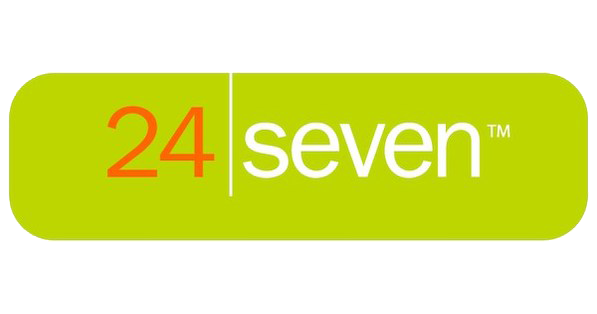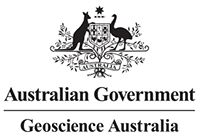Ensuring the quality and performance of your mobile app is crucial for delivering a seamless user experience and maximizing its success. At WNPL, we prioritize rigorous app testing and quality assurance processes to identify and resolve any issues before your app reaches your users' hands.
Comprehensive Testing Methodologies:
We employ comprehensive testing methodologies to cover all aspects of your mobile app. Our experienced quality assurance (QA) team conducts various types of testing, including functional testing, performance testing, usability testing, security testing, and compatibility testing. By thoroughly testing your app, we identify and rectify any bugs, glitches, or performance bottlenecks, ensuring a robust and reliable user experience.
Utilization of TestFlight for Beta Testing:
To ensure real-world testing and gather valuable user feedback, we utilize TestFlight, Apple's beta testing platform. TestFlight allows us to distribute pre-release versions of your iOS app to a select group of testers, enabling us to collect insights, identify potential issues, and make necessary improvements based on actual user experiences. This beta testing phase helps us fine-tune your app and address any usability or functionality concerns.
Rigorous Quality Assurance Processes:
Quality assurance is an integral part of our development process. Our QA team meticulously reviews every aspect of your app, from its functionality and user interface to its performance and compatibility. We conduct thorough testing at each stage of development, ensuring that your app meets the highest standards of quality before it is released to the public. Our commitment to quality drives us to deliver a bug-free and seamless app experience to your users.
Optimal Performance and Stability:
We understand that users expect a fast, responsive, and stable app experience. Through extensive performance testing, we identify and address any bottlenecks or issues that may impact your app's speed and responsiveness. By optimizing code, improving caching mechanisms, and employing best practices, we strive to deliver an app that provides optimal performance and stability across different devices and usage scenarios.
User-Centric Usability Testing:
Usability is a key factor in user satisfaction and engagement. Our usability testing process focuses on evaluating how easily and intuitively users can navigate and interact with your app. By conducting usability tests with real users, we gain valuable insights into their behavior, preferences, and pain points. This helps us refine the app's user interface, improve user interactions, and create a more intuitive and enjoyable user experience.
Continuous Improvement:
App testing and quality assurance are not one-time activities but ongoing processes. Even after your app is launched, we remain committed to its success. We continuously monitor its performance, collect user feedback, and address any reported issues promptly. We provide regular updates and enhancements to ensure your app remains optimized and competitive in the ever-evolving mobile landscape.
Tools used
Effective testing and quality assurance are vital to ensure the smooth functioning and high performance of mobile apps. At WNPL, we utilize a range of tools to streamline the testing and quality assurance process. Here are some commonly used tools in mobile app testing:
- Appium:
Appium is an open-source test automation framework for mobile app testing. It allows for cross-platform testing and supports multiple programming languages, including Java, Python, and JavaScript. Appium enables automated functional testing, UI testing, and regression testing for iOS and Android apps.
- Selenium:
Selenium is a widely used open-source testing framework primarily for web applications. However, it also offers support for mobile app testing through tools like Selendroid and Appium. Selenium allows for the creation of automated tests that simulate user interactions across different mobile devices and platforms.
- Xcode:
Xcode is Apple's integrated development environment (IDE) for iOS app development. It includes a suite of testing tools, such as XCTest, which enables unit testing, performance testing, and UI testing for iOS apps. Xcode's testing capabilities help ensure the quality and stability of iOS apps.
- Android Studio:
Android Studio is Google's official IDE for Android app development. It provides a set of testing tools, including Android Test, for unit testing, integration testing, and UI testing of Android apps. Android Studio simplifies the testing process and facilitates debugging and profiling.
- Firebase Test Lab:
Firebase Test Lab is a cloud-based testing platform by Google. It allows for the automation of testing on real devices hosted in Google's data centers. Firebase Test Lab supports testing on various Android devices and configurations, helping identify compatibility issues and performance bottlenecks.
- Charles Proxy:
Charles Proxy is a powerful tool for inspecting and analyzing network traffic during mobile app testing. It allows testers to monitor and intercept HTTP/HTTPS requests and responses, identify performance issues, debug network-related problems, and simulate different network conditions.
- TestFlight:
TestFlight is Apple's beta testing platform for iOS apps. It enables developers to distribute pre-release versions of their apps to a selected group of testers for testing and feedback. TestFlight provides a streamlined way to gather user feedback and identify any issues before releasing the app to the App Store.
- Jenkins:
Jenkins is an open-source automation server widely used for continuous integration and continuous delivery (CI/CD) in mobile app development. It facilitates automated builds, testing, and deployment processes, helping ensure the quality and stability of mobile apps throughout the development lifecycle.
Further reading
- "The Mobile App Testing Handbook" by Daniel Knott
This book offers a comprehensive guide to mobile app testing, covering various aspects such as testing strategies, test automation, performance testing, and security testing. It provides practical examples, tips, and best practices to improve the quality of mobile apps.
- "Tap Into Mobile Application Testing: A Comprehensive Guide to Testing Mobile Applications" by Jonathan Kohl and Jason Arbon
This book provides an extensive overview of mobile app testing, including topics like test planning, test automation, usability testing, and performance testing. It offers practical advice and real-world examples to help testers improve their mobile app testing skills.
- "Testing Mobile Apps: Experiences and Tips" by Julian Harty and Mahadev Satyanarayanan
Written by industry experts, this book provides insights into the challenges and best practices of testing mobile apps. It covers various testing techniques, tools, and strategies, along with real-world case studies to illustrate common pitfalls and effective testing approaches.
- "Android Application Testing Guide" by Diego Torres Milano
This book focuses on testing Android applications, offering a comprehensive guide to functional and non-functional testing. It covers topics such as UI testing, unit testing, performance testing, and security testing for Android apps, providing practical examples and code snippets.
- "iOS Application Security: The Definitive Guide for Hackers and Developers" by David Thiel
This book delves into the security aspects of iOS app development and testing. It covers topics like secure coding practices, encryption, data protection, and vulnerability testing. It provides insights into identifying and mitigating security risks in iOS apps.
- "Continuous Integration, Delivery, and Deployment: Reliable and Faster Software Releases" by Sander Rossel
This book focuses on continuous integration, delivery, and deployment (CI/CD) practices for mobile app development. It covers topics like build automation, testing automation, release management, and DevOps principles, providing guidance for streamlining the app delivery process.
- "Mobile Testing: An ASTQB Certified Tester—Foundation Level (CTFL) Approach" by Paul M. Gerrard and Peter Morgan
This book serves as a study guide for the ASTQB Certified Mobile Tester (CTFL) certification. It covers the fundamentals of mobile app testing, including test design techniques, test management, and mobile-specific testing challenges.









